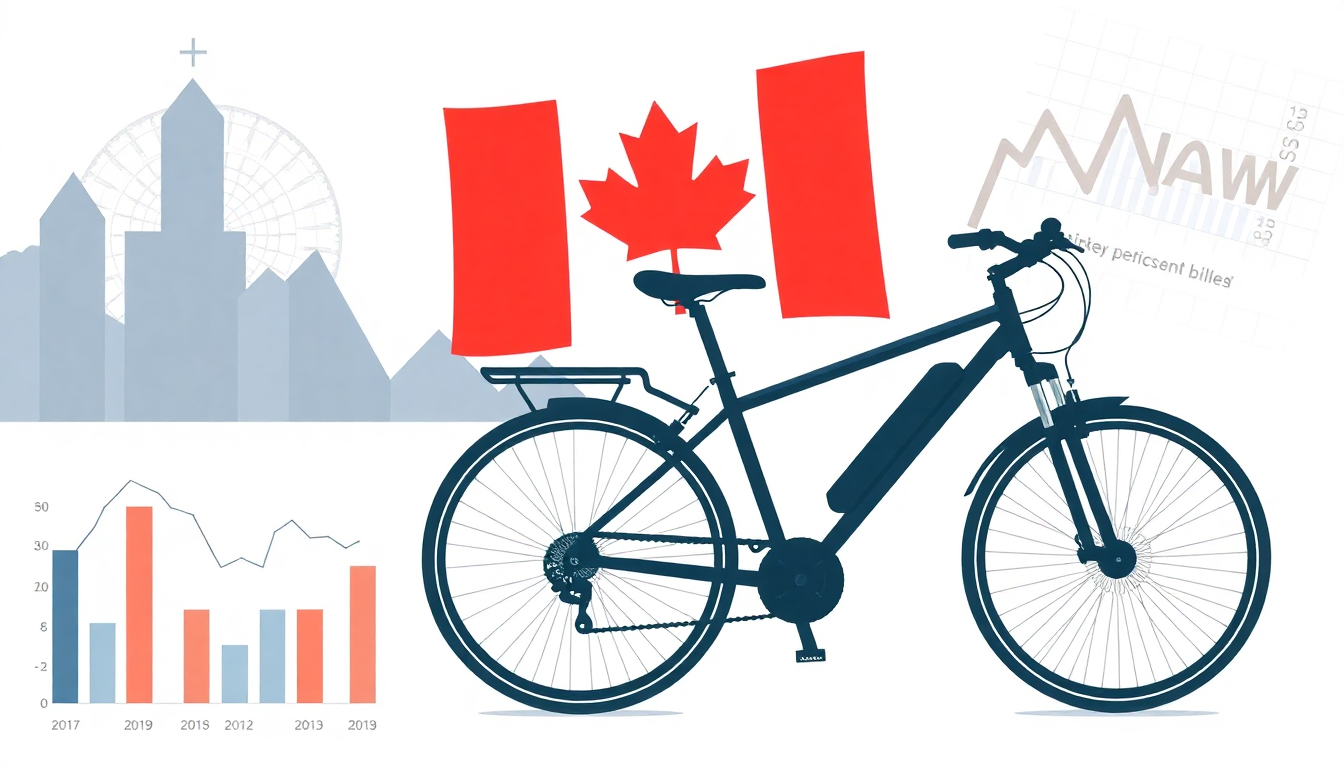
Navigating the E-Bike Tariff Maze: A Canadian E-Bike Distributor's Perspective
As the owner of Alter Ego Bikes, one of Canada's original e-bike companies and distributors, I've been closely following the ongoing discussions around the Canadian government's approach to electric bike tariffs. It's a complex issue that has left many of us in the electric bike community scratching our heads, wondering how these changes will impact our beloved sport and the industry as a whole.
The recent introduction of a 25% tariff on imported electric bikes has sent shockwaves through the industry, and for good reason. E-bikes have become increasingly popular in Canada, offering a sustainable and accessible mode of transportation for people of all ages and abilities. They've opened up the joys of cycling to a whole new demographic, and their environmental benefits are undeniable.
As a business owner, I understand the government's desire to protect domestic industries and promote local manufacturing. However, the reality is that all e-bikes sold in Canada are imported, and the domestic production capacity simply can't keep up with the growing demand. This tariff, while well-intentioned, has the potential to price many Canadians out of the e-bike market, effectively limiting access to this transformative mode of transportation.
What's particularly frustrating is the lack of clarity and consistency in the government's approach. The tariff applies to electric bicycles, but not to electric mopeds or scooters, which are often used for similar purposes. This inconsistency leaves us scratching our heads, wondering about the rationale behind these decisions.
Moreover, the tariff has created a ripple effect throughout the supply chain, with manufacturers and retailers struggling to absorb the additional costs. As a result, we're seeing price increases that are passed on to the consumer, making e-bikes less affordable for the average Canadian. This is particularly concerning for those who rely on e-bikes as a primary mode of transportation, as the increased costs could price them out of the market entirely.
As a passionate cyclist and a business owner, I'm deeply invested in the future of the e-bike industry in Canada. I believe that these bikes have the potential to revolutionize the way we think about urban transportation, reducing congestion, improving air quality, and promoting a healthier, more active lifestyle. But to realize this potential, we need policies that support and encourage the adoption of e-bikes, not ones that create barriers to access.
I urge the Canadian government to take a closer look at this issue, to engage with industry stakeholders, and to develop a more nuanced and balanced approach to e-bike tariffs. By working together, we can find a way to support domestic manufacturing while also ensuring that e-bikes remain accessible and affordable for all Canadians.
The Importance of E-Bikes in Canada
E-bikes have become a game-changer in the cycling world, offering a solution to the challenges of urban transportation. They provide a practical and eco-friendly alternative to traditional modes of transport, allowing people to commute, run errands, and explore their communities with ease.
In a country as vast and diverse as Canada, e-bikes have the potential to bridge the gap between rural and urban areas, providing a reliable and sustainable means of transportation for those who may not have access to public transit or private vehicles. By making cycling more accessible, e-bikes can also contribute to improved public health, as they encourage physical activity and reduce sedentary lifestyles.
The Impact of Tariffs on the E-Bike Industry
The introduction of a 25% tariff on imported e-bikes has had a significant impact on the industry, both for businesses and consumers. As a business owner, I've seen firsthand the challenges of navigating this new landscape, as we strive to maintain competitive prices and ensure the continued growth of the e-bike market.
The tariff has led to increased costs for manufacturers, distributors, and retailers, which are then passed on to the consumer. This has made e-bikes less affordable for many Canadians, potentially pricing out those who rely on them as a primary mode of transportation.
Moreover, the inconsistency in the government's approach, has created confusion and uncertainty within the industry. This lack of clarity makes it difficult for businesses to plan and invest in the future, as they struggle to understand the long-term implications of these policies.
The Way Forward
As we navigate this complex issue, it's crucial that the Canadian government engages with industry stakeholders to develop a more nuanced and balanced approach to e-bike tariffs. By working together, we can find a way to support domestic manufacturing while also ensuring that e-bikes remain accessible and affordable for all Canadians.
One potential solution could be the implementation of targeted incentives or tax credits for e-bike purchases, which would help offset the increased costs and encourage wider adoption. Additionally, the government could explore ways to support domestic e-bike manufacturing, such as investing in research and development or providing access to resources and training.
Ultimately, the success of the e-bike industry in Canada will depend on the government's willingness to listen to the concerns of businesses and consumers, and to develop policies that foster innovation, sustainability, and accessibility. By taking a collaborative and forward-thinking approach, we can unlock the full potential of e-bikes and create a more sustainable and equitable transportation future for all Canadians.




